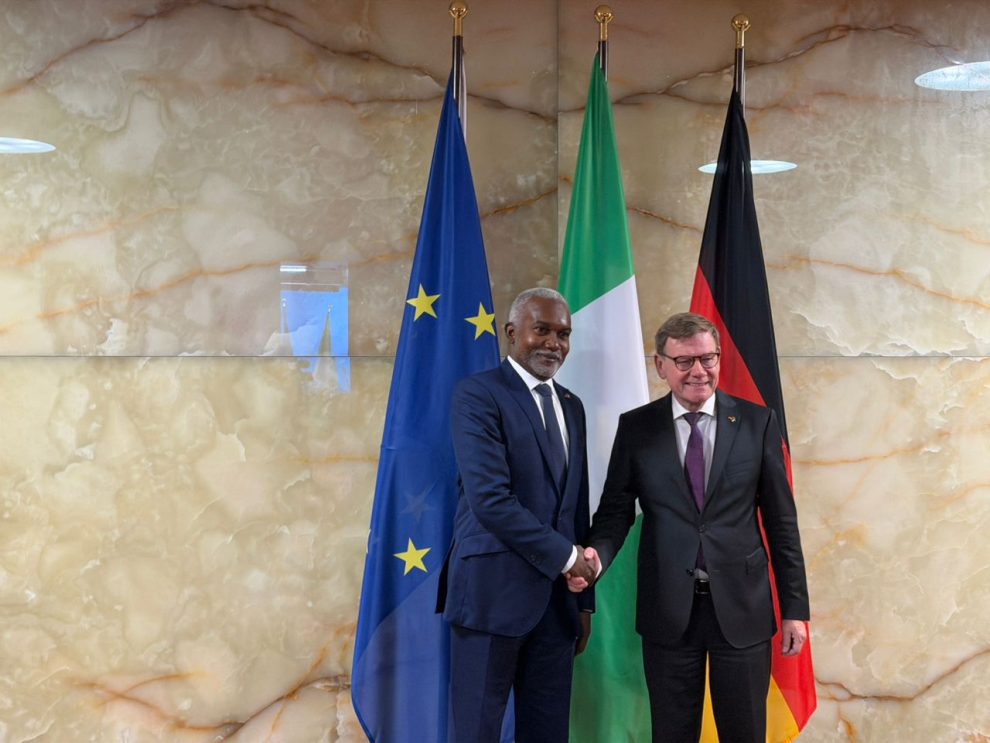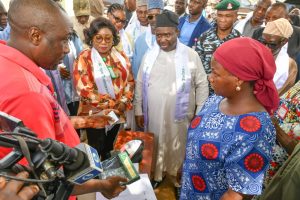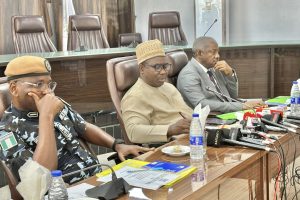By Africa Eye News
Nigeria and Germany have renewed a comprehensive commitment to strengthen cooperation in key strategic areas, including energy, security, trade, and migration, following a high-level meeting in Berlin. The renewed focus falls under the framework of the Nigeria–Germany Bi-National Commission, coinciding with the 65th anniversary of diplomatic relations between the two nations. Nigerian Minister of Foreign Affairs, Ambassador Yusuf Maitama Tuggar, met with his German counterpart, Minister Johann Wadephul, to review and expand collaboration across several critical sectors. Ambassador Tuggar described the relationship as a “cornerstone” of Nigeria’s engagement with Europe.
Power and the Energy Transition
A major focus of the discussions was the energy sector. The Ministers reviewed progress on the Presidential Power Initiative (PPI), a significant project supported by Siemens Energy aimed at upgrading Nigeria’s national grid.They also discussed the Green Guarantee Group (GGG), co-chaired by Nigeria, which is designed to attract substantial investment into renewable energy and climate-resilient infrastructure. Ambassador Tuggar confirmed that Nigeria’s energy transition would remain “inclusive,” leveraging natural gas as a necessary transition fuel while simultaneously scaling up renewable energy sources.
Security and Regional Stability
On security, both nations agreed to intensify cooperation on intelligence sharing, cybersecurity, and border management under the German Technical Advisory Group (GTAG). The Nigerian Minister urged Germany to take a “firmer stance within the EU” against organisations he claimed exploit European jurisdictions for incitement and illicit financing aimed at undermining stability in Nigeria.
Economic Ties and Investment
Bilateral trade between Nigeria and Germany reached €3 billion in 2024, positioning Germany as Nigeria’s second-largest European trading partner. Minister Tuggar called for greater diversification of trade “beyond hydrocarbons,” seeking German investment in sectors like automotive assembly, ICT, manufacturing, and agro-industrial exports. He noted that Nigeria’s recent removal from the FATF Grey List should strengthen investor confidence and reduce business risks.
Migration and Skills
Both Ministers commended ongoing cooperation on migration and skills development through existing channels like the Talent Partnerships and the SUSTAIN Project. Nigeria specifically proposed expanded collaboration for its citizens in ICT, engineering, and healthcare. Ambassador Tuggar highlighted that Business Process Outsourcing (BPO) offers “new opportunities for young Nigerians to service German industries remotely,” providing a pathway for skilled labour migration. The discussions also touched on cultural cooperation, with the Minister thanking Germany for the recent restitution of the Benin Bronzes, calling the act a “symbol of shared respect for history and heritage.” On the broader regional stage, Ambassador Tuggar briefed his counterpart on Nigeria’s leadership within the Economic Community of West African States (ECOWAS) and efforts to strengthen democratic institutions and stability across the region. The Ministers concluded that the renewed dialogue will “consolidate mutual trust and elevate our partnership,” anchored on a shared commitment to democracy and multilateral cooperation.





Add Comment